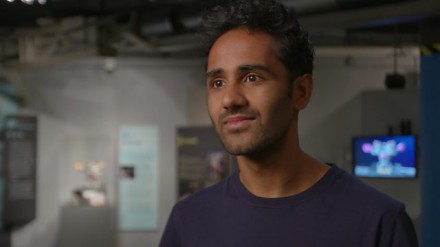As part of its Intelligent Machines series of broadcasts and initiatives, last night the BBC broadcast an edition of #BBCPanorama entitled ‘Could A Robot Do My Job?‘, presented by former Downing Street tech economy adviser, entrepreneur, and svengali Rohan Silva.
The theme of automation, robotics, artificial intelligence and employment has come to the fore in the last year and has elicited much intelligent commentary. Silva’s documentary covered prominent examples with which regular viewers may not have been familiar, such as Uber car services, the self-driving car pilot in Milton Keynes, and the ‘replacement’ of Kodak by Instagram. But how the BBC expected to address such a complex and wide-ranging subject – tying together themes as disparate as the filing of tax returns, transport logistics, the digitisation of photography, and robotic manufacturing – in a half-hour documentary I can’t imagine.
As usual the theme was that technology drives society, and we’re just to be carried along – with a commentary from people who presumably don’t feel they lack agency. Silva implied that we’d see radical change based on Moore’s Law – as if that directly mapped to the rate of societal change – and told us that everything is increasing exponentially. (How many journalists who use this term could actually define an exponential function, or any other function related to change?)
Silva’s narrative failed to address business or economics in any meaningful way; consider the infrastructural implications of the developments he illustrated; or review the legal ramifications. Neither did it consider how we, the ‘workers’, might respond – other than a cursory and trite ‘don’t let the machines master us!’ at the end. Nor did it reflect on how previous hysteria around automation – particularly robots in manufacturing in the 80s – had worked out in reality, though he does that Panorama ‘has often made ambitious projections for machines’, citing an episode from 1966, California 2000.
Most significantly it lacked any theory – other than pilfering McAfee and Brynjolfsson’s ‘Second Machine Age‘ – or a new paradigm, which at least Channel 4 journo Paul Mason attempted in his ‘Postcapitalism: A Guide to Our Future‘.
[To join an existing discussion on this commentary you can post responses on the draft at State.com]
